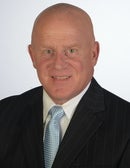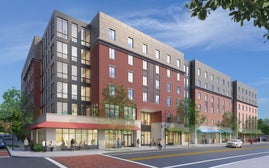Make room for 'social business'
 David A. Jordan
David A. Jordan
Does business have any responsibility in addressing social issues or needs? The American economist and Nobel laureate Milton Friedman penned a famous 1970 New York Times magazine editorial in which he asserted: “There is one and only one social responsibility of business – to use its resources and engage in activities to increase its profits.”
Today, this is often referred to as the "Scrooge argument"; that is, “the business of business is business” and social issues should only be the purview of the government. But in the mid-1990s, scholars and business leaders began to consider a new business ethic, suggesting an implicit “social contract” between the profit sector and society with obligations, opportunities and shared advantages for each. Pure corporate greed began to give way to “corporate social responsibility” and the concept of “shared value.” (Think of the value Hanover Insurance has brought to Worcester through the emerging arts and culture sector).
Today, this concept has been further developed by Nobel Peace Prize laureate Muhammad Yunus of Bangladesh, who has argued for a “new kind of capitalism that serves humanity's most pressing needs.” His concept of “social business” emphasizes the power of capitalism to do more than reward shareholders.
Dannon, BASF, Adidas, Newman's Own and other global for-profit entities are increasingly recognizing that social concerns are not merely tangential to business but fundamentally connected to it. “Social business” portends an evolution (some might say a creative disruption) to our long-held notion of capitalism as driven purely by self-interest. Yunus envisions an enlightened form of capitalism that rebalances the scale of equity between those at the top and bottom of the economic pyramid. He calls for profit-making businesses to establish socially driven subsidiaries to which all dividends and profits are directed to solving community needs.
My work as a social entrepreneur, nonprofit administrator and college educator has taken me to places in America and developing countries where abject poverty is a way of life. I've seen and been touched by the smell of poverty so rooted in a community as not to be describable back in the comfort of my home community: Worcester. More recently, through the efforts of two of my former Clark University students originally from Bangladesh, I met with Muhammad Yunus to discuss the evolving role of business in all societies around the world and – with the support of the administration and trustees of Becker College – bring the first “Yunus Social Business Centre” in the U.S. to Becker. The intent of this initiative, in partnership with Seven Hills Foundation, will be to explore how we can engage business, government and all citizens toward advancing a form of capitalism that lifts all people in our society, in particular the least advantaged.
As Silicon Valley in California is often thought of as the epicenter of high tech and Boston the hub of higher education and health care, why not Central Massachusetts as the birthplace for American capitalism's reinvention, and the development of social business?
David A. Jordan is president of Seven Hills Foundation, based in Worcester. He is also the Social Entrepreneur in Residence at Clark University and Professor of Practice of Social Innovation at Becker College, where he is also a trustee.













0 Comments